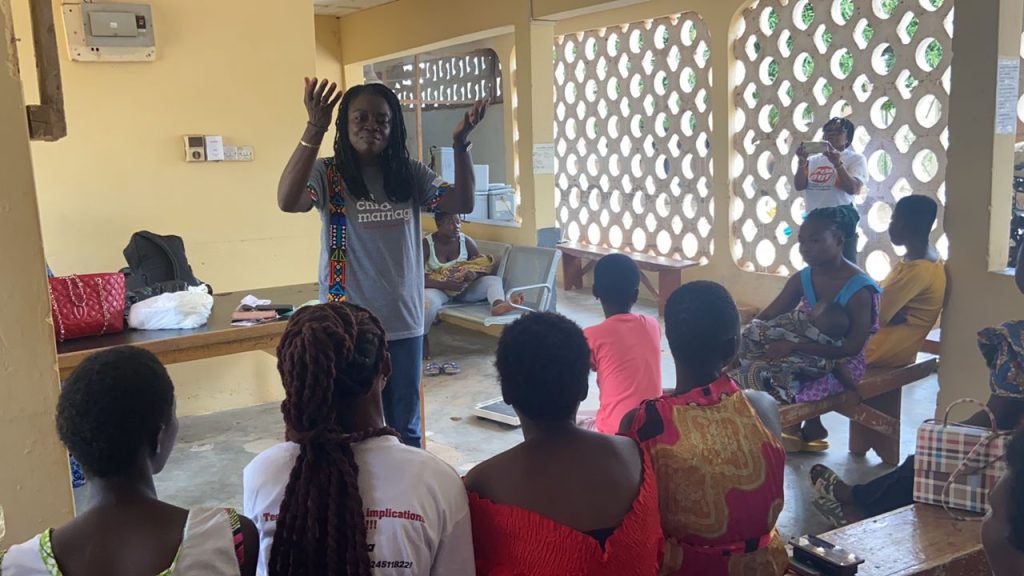By Anthony Adongo Apubeo
Bongo (U/E), Sept 14, GNA – Ms Adjoa Yenyi, Adolescent and Youth Specialist, United Nations Population Fund (UNFPA), has encouraged teenage pregnant girls and adolescent mothers to return to school or learn a trade after delivery.
Getting pregnant at an early age, she said, was unfortunate, however, it was not the end of their lives as there were opportunities for them to get back on track through the reentry policy by the Ghana Education Service, she told the girls.
She advised those who did not wish to return to the formal school system to learn a trade through the vocational and technical skills acquisition programme which would equip them for the job market or be self-employed.
“You all know how important women and girls are in the house, we look after the house, we feed our family and we do a lot of things, so whatever it is, you must make sure you can move up so that you will be able to play that role.
“Having a baby is not the end of the world for you, you can still make it”, she said.
Ms. Yenyi was speaking to some adolescent pregnant girls and teenage mothers at Bongo in the Upper East Region, organised by the Planned Parenthood Association of Ghana (PPAG), a non-government organisation.
It was part of the UNFPA’s adolescent empowerment programme with financial support from the Canadian government and being implemented in six communities in the district.
It is aimed at identifying and supporting adolescent pregnant girls and teenage mothers to get their lives back on track and live dignified lives.
Ms Esther Mbilla, the Bongo District Adolescent Focal Person, Ghana Health Service, said most of the time adolescents particularly girls did not have the right information on Sexual and Reproductive Health and Rights (SRHR) to enable them to make informed decisions about their sexual life.
That, she said, did not allow them to properly negotiate for sex and often end up with unplanned pregnancy, compelling them to drop out of school.
She urged pregnant girls and mothers to patronise antennal and postnatal services at health facilities to ensure their safety and avoid mother-to-child transmission of Sexually Transmitted Infections such as HIV and syphilis.
She admonished them to practice good personal hygiene and access family planning methods to prevent future unplanned pregnancies.

Madam Rita Abamah, the Girl-Child Education Officer in charge of Bongo District advised parents to support their teenage wards who were pregnant to return to school or learn a trade to become economically independent.
Mr Martin Anyoka, the PPAG Field Officer in charge of Bongo District, noted that the main objective of the project was to empower teenage mothers and pregnant girls with accurate information on SRHR to ensure they did not get pregnant again and take care of their babies.
It was also meant to support girls who wished to return to school to do so or learn a trade.
Mr Anyoka said the pregnant girls and mothers were given delivery items including packets of detergent, key soap, diapers, and clothes among others while 12 girls were supported with bags, books, pens, and shoes to return to the formal school system.
GNA